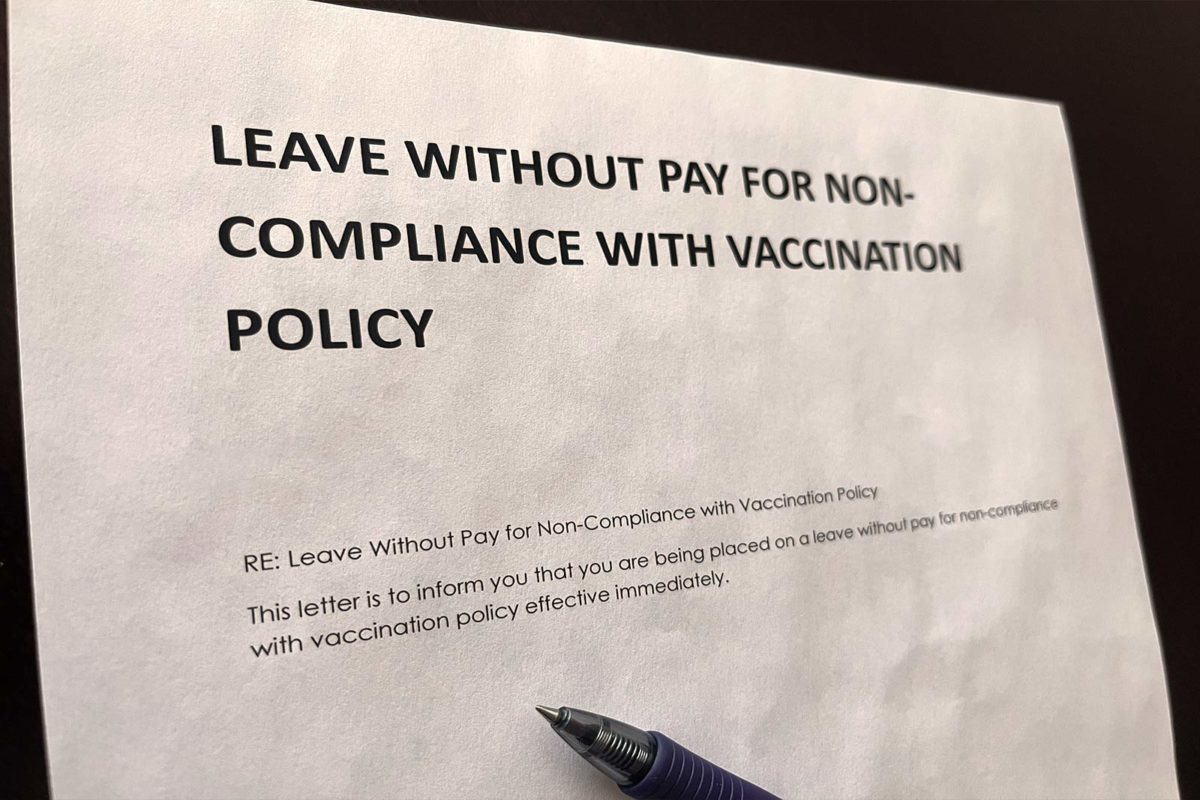Many employers are required to implement mandatory vaccination policies. Others, while not explicitly mandated by the government to do so, are implementing them to ensure a safe workplace. As these vaccination policies are implemented, employers face the complicated problem of terminating employees who refuse to comply with a vaccination policy.
So, how do you protect your business now from wrongful dismissal claims in the era of COVID-19 policy-related dismissals? And what steps can you take now to protect your business in the future?
Protecting your business today
Many employers are terminating employees who refuse to comply with mandatory vaccination policies.
Some employers are laying off or placing employees on unpaid leave if they refuse to comply with the mandatory vaccination policy. However, employers should be cautious when doing so because, unless expressly permitted in the employee’s employment agreement, lay offs and unpaid leave are generally not permitted and could invite a constructive dismissal claim.
To avoid a constructive dismissal claim, you may wish to terminate an employee without cause and provide the appropriate notice or pay in lieu of notice. If you decide to terminate an employee without cause, you must first carefully review the employee’s employment agreement to determine whether the termination provisions are enforceable. If the termination provisions are enforceable, the employee’s notice period or pay in lieu of notice could be limited to the Employment Standards Act, 2000 (“ESA”) minimum. In this case, the cost effective and safe approach may be to simply terminate the employee without cause and provide them with their minimum entitlements. However, if the termination provisions are unenforceable, or the employee does not have an employment agreement, you will be required to provide common law reasonable notice or pay in lieu of common law reasonable. This can amount to up to 24-months compensation for long term employees.
Alternatively, you may wish to terminate the employee with cause and withhold any termination or severance pay. An experienced employment lawyer will ensure you are taking the right approach if you decide to terminate an employee with cause. Terminations with cause due to non-compliance with a vaccination policy have not yet been considered by a court and are highly contextual. This approach bears more risk because an employee terminated with cause and not provided with any severance will likely look to improve their situation through legal recourse.
Protecting your business in the future
Moving forward, the best strategy to avoid costly litigation is to update your employment agreements.
As we have noted in the past, many employment agreements do not have enforceable termination provisions due to the decision in Waksdale v Swegon North America. Accordingly, you should update your employment agreements to ensure the termination provisions are enforceable. This way, you can comfortably rely on without cause terminations, including in circumstances where an employee refuses to comply with a vaccination policy.
Most employment agreements do not have a provision permitting a temporary lay off or unpaid leave. Therefore, if you were to place an employee on temporary layoff or unpaid leave due to non-compliance with a mandatory vaccination policy, they could successfully claim constructive dismissal. You should immediately update your employment agreements to permit temporary layoffs and unpaid leave.
Finally, when hiring new employees, ensure they expressly agree to the mandatory vaccination policy as a term of their employment with your business.
The best strategy is to create air-tight employment agreements that dissuade employees and their lawyers from even considering a lawsuit. We encourage you to consult with an experience employment lawyer to assist you navigate these issues.
Contact HUM Law today to ensure your employment contracts will remain valid.
Call today at (416)214-2329 or email info@thehumlawfirm.ca or Complete our Free Assessment Form Here


